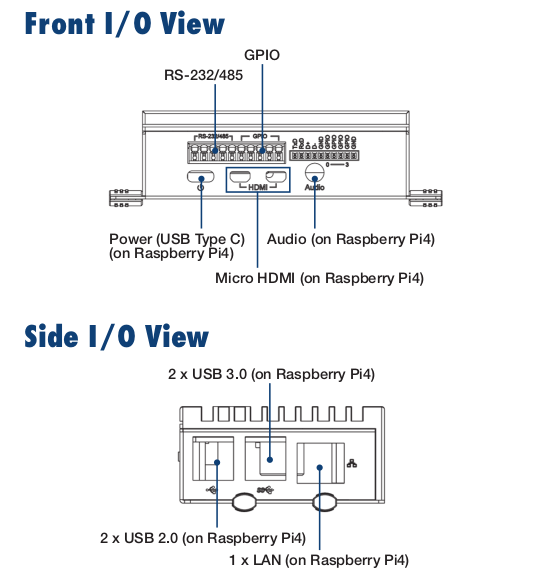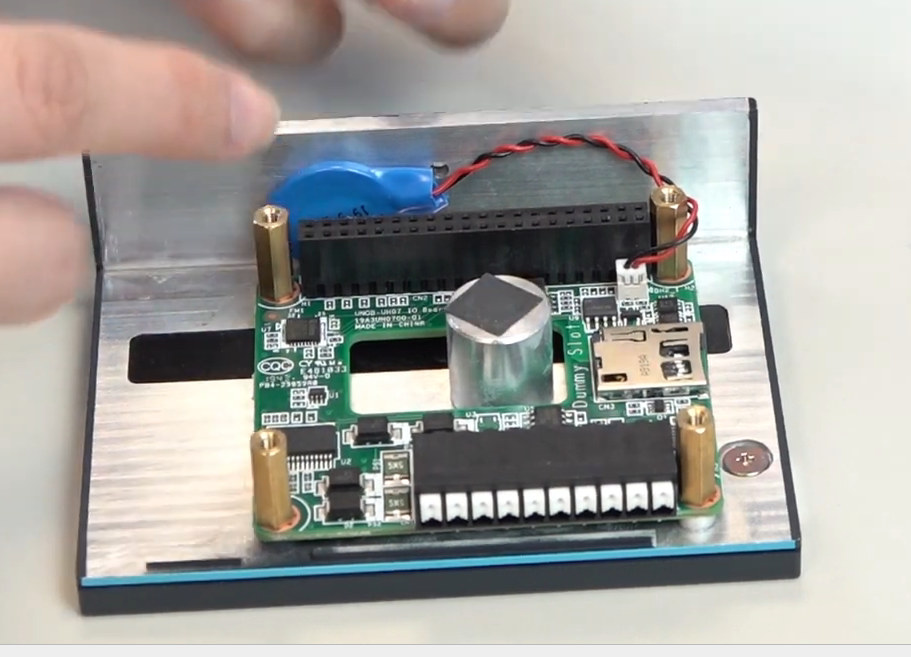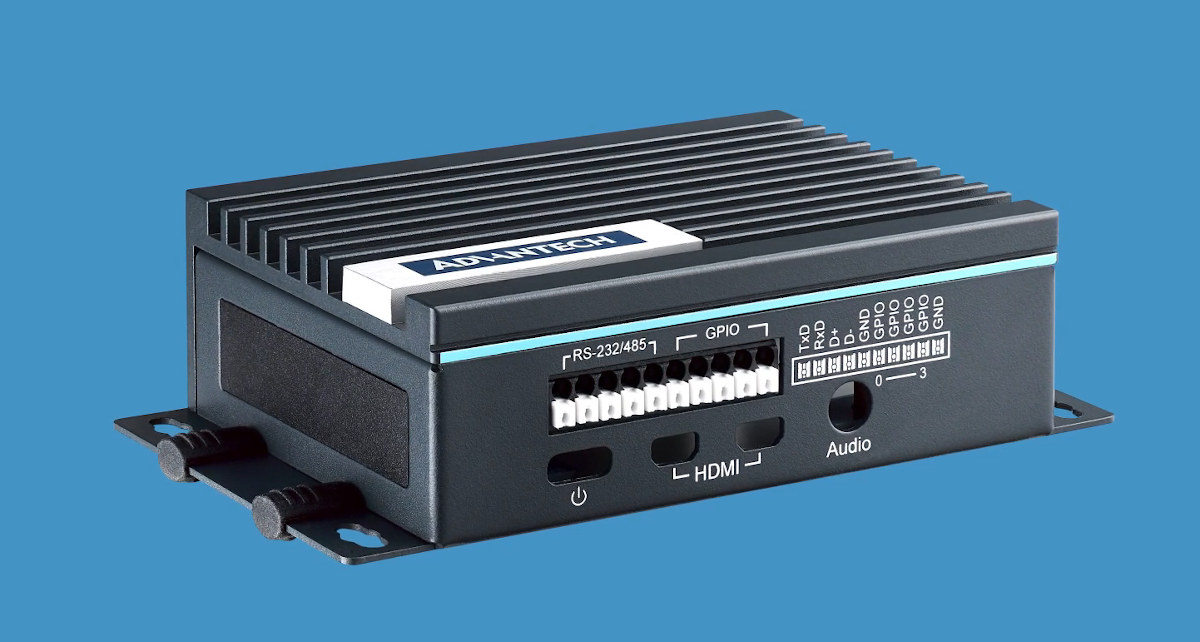While Raspberry Pi SBCs are mostly designed for the education market, they find their way in various devices, even in the industrial market with products such as ModBerry M500 industrial computer, Compulab IOT-GATE-RPi industrial IoT computer, BB-400 Neuron Edge industrial controller, and many others.
All those offer RS-232 and RS-485 ports besides other interfaces typically found in industrial applications like isolated inputs, CAN buses, and more. There’s now yet another option with Advantech UNO-200 industrial gateway kit for Raspberry Pi 4 board with RS232/RS485 header and RTC battery.
Advantech UNO-220 specifications:
- Compatible SBC – Raspberry Pi 4 Model B with dual micro HDMI outputs, audio jack, as well as USB and Ethernet ports accessible through the enclosure
- I/O Interfaces
- GPIO – Input (GPI) 0-3: VIH: 2~5V VIL: 0 ~ 0.8V; Output (GPO) 0-3: 0 ~ 5V
- Serial Ports – 5-pin terminal block for RS232/485, automatic direction control, 300 ~ 115.2kbps
- Hardware Security – Optional TPM2.0
- Misc – Power button, watchdog timer
- Power Supply – Raspberry Pi 4’s USB-C port
- Power Consumption – 15 W (Typical)
- Dimensions – 100 x 70 x 32mm (Aluminum Housing)
- Weight – 0.5 kg
- Certifications – CE, FCC
- IP Rating – IP40
- Temperature Range – Operating: 0 ~ 50°C @ 5 ~ 85% RH with 0.7 m/s airflow; storage: 20 ~ 60 °C
- Relative Humidity – 10 ~ 95% RH @ 40°C, non-condensing


Advantech UNO-220 RS232/RS485 gateway kit is available now for $90 on Advantech Online store without Raspberry Pi 4 SBC. Further information may be found on the product page.
Via LinuxGizmos

Jean-Luc started CNX Software in 2010 as a part-time endeavor, before quitting his job as a software engineering manager, and starting to write daily news, and reviews full time later in 2011.
Support CNX Software! Donate via cryptocurrencies, become a Patron on Patreon, or purchase goods on Amazon or Aliexpress





